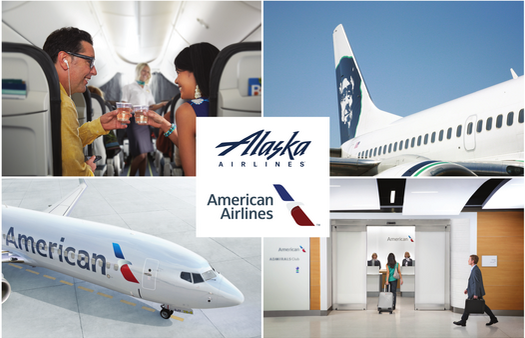
The expanded West Coast alliance between American Airlines and Alaska Airlines looks set to deal a big win for both parties and a fresh blow to Delta Air Lines, according to several analysts who commented on the deal.
“This was all about fending off Delta’s incursion in the Seattle market,” George Hamlin with Hamilton Transportation Consulting said. “Alaska found itself needing to avoid being squashed by the major carriers, and American ended up playing the role of the white knight vis a vis Delta, which has been advancing out of Seattle for some time now.”
Announced Feb. 14, the agreement restores the dwindling domestic partnership between the carriers and expands their codeshare operations to include international routes from Seattle and Los Angeles. New planned routes from Seattle by American include Bangalore, India in October 2020 and London Heathrow in March 2021.
“This has a lot to do with Seattle and everything to do with Delta’s growth in Los Angeles, Salt Lake City and San Jose,” said Bill Swelbar with Delta Airport Consultants. “I see Alaska as a real winner in that it can leverage its assets bought from Virgin America as well as continue its relationship with American that was scheduled to shrink in March.”
As part of the agreement, Alaska will join the oneworld alliance by summer 2021, which will expand its existing partner base to 16 global carriers, while retaining its existing non-oneworld partnerships. The Seattle-based airline may need to update its technology offerings and website before gaining official entry into the alliance, notes Credit Suisse analyst Jose Caiado.
Alaska is by far the biggest carrier operating at Seattle-Tacoma Airport, controlling 49% of domestic capacity there, compared to 25% for Delta and American’s 8%, according to data from Credit Suisse. In terms of international market share, Delta is the largest player by a considerable margin, controlling roughly one third of international capacity, more than double the amount of any other carrier.
“Over five years ago, Delta set out to build a Pacific gateway in Seattle as a central part of its Pacific network restructuring, and the carrier has tripled its seats in the market since 2013, with the airport now accounting for 3% of its total seats vs. 1.2% in 2013,” Caiado wrote in a recent investor note.
While the agreement raises the pressure on Delta, it is unclear whether the carrier will attempt to take any explicit measures to counter it, or what options would be available should it wish to.
“Delta has a significant first mover advantage on American in the West, going back to the beginning of its Seattle project in 2010,” Swelbar said. “I don’t expect much from Delta other than to continue to carry out its plans of putting a major marker down in the commercial centers that are paramount in this economy like Boston, Raleigh-Durham and Austin, in addition to strategic points in the Western U.S.”
George Hamlin concurs: “There won’t necessarily be a reaction ... Delta has built itself up in Seattle, and while Delta may want to assess if the slope has gotten steeper there going forward, I don’t see them turning away from it anytime soon.”





